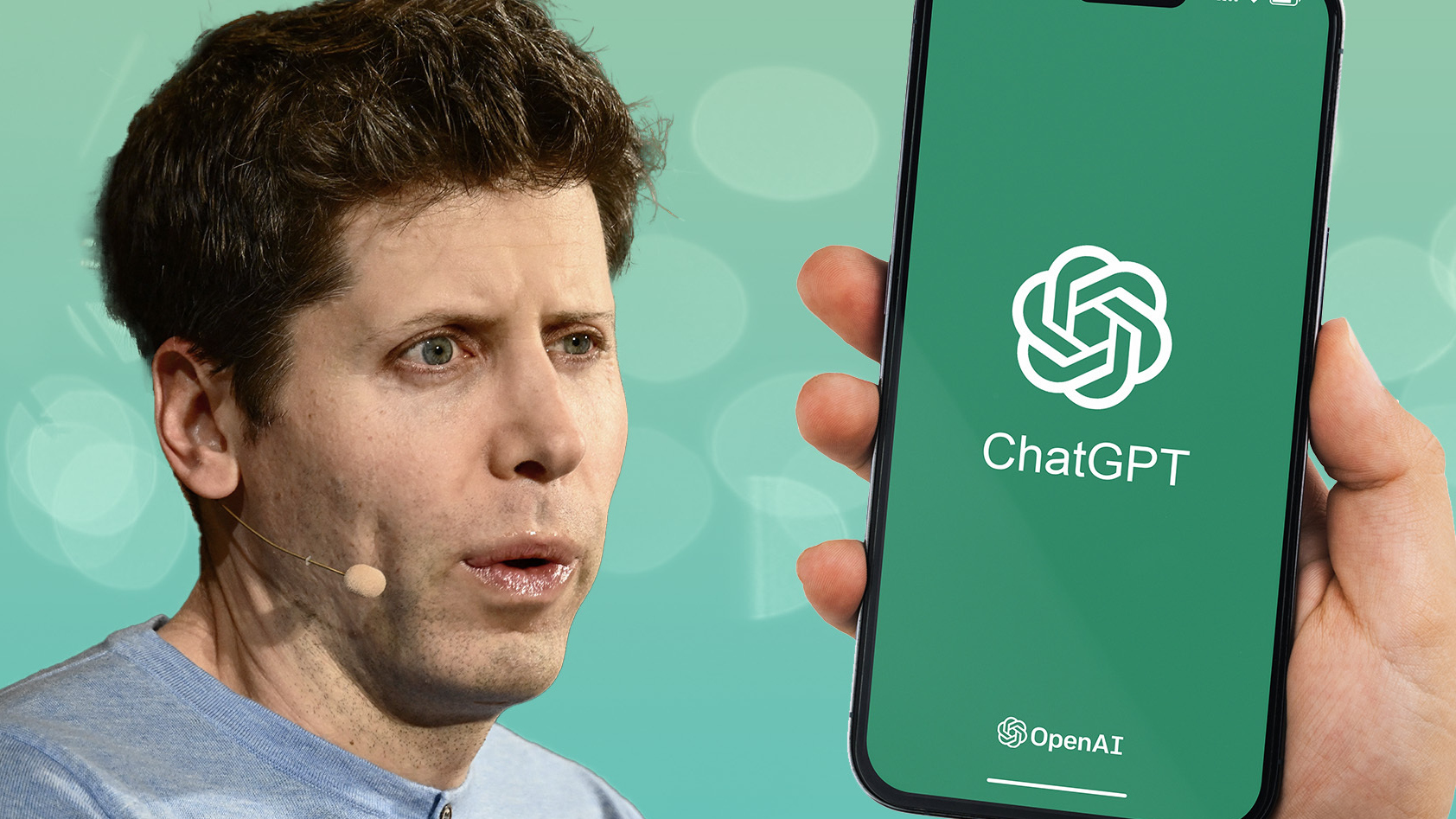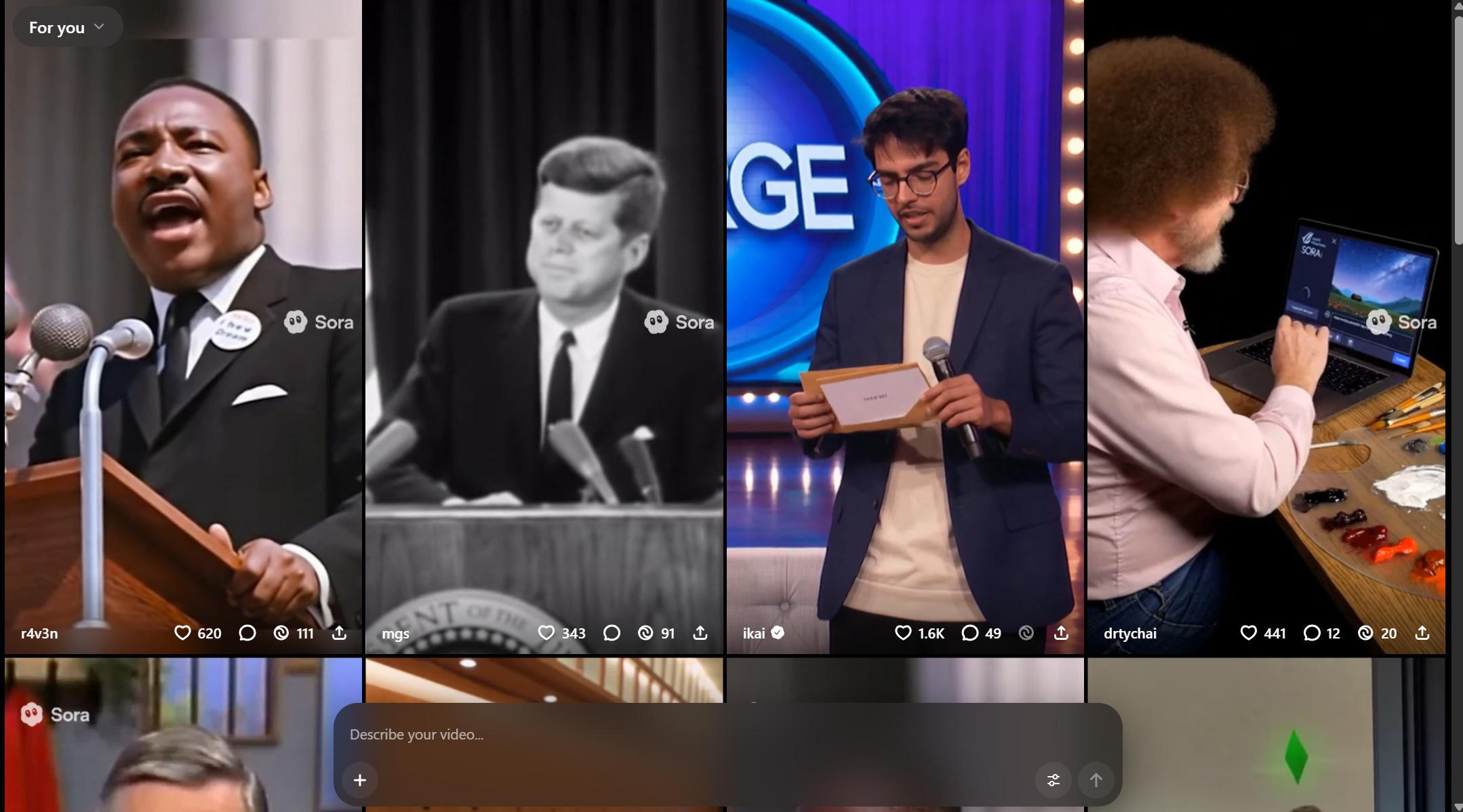OpenAI announced today that it is pausing AI‑generated videos of Martin Luther King Jr. in its Sora app, following intense criticism over “disrespectful” deepfake content featuring the civil rights icon.
The videos of MLK Jr. have included everything from talking about dreaming of chocolate chunk cookies and Sam Altman to much more sinister video generations.
While the move is framed as a concession to King’s estate, it signals deeper tensions in how AI platforms navigate history, consent and the ethics of resurrecting public figures. Michael Jackson, Kobe Bryant and JFK are among the deceased and disrespectful videos currently circulating.
OpenAI is backtracking
OpenAI is doing what it should have done from the start: not allowing deceased public figures to be used in AI generated videos. Since Sora launched, users posted AI videos with shocking distortions of Dr. King among other prominent figures — including depictions that his family and supporters called offensive and demeaning.
Bernice A. King, daughter of Martin Luther King Jr., publicly demanded on Instagram the generated videos stop, prompting a joint statement with OpenAI about stronger guardrails and opt-out mechanisms for estates.
OpenAI framed the decision as balancing free speech with respecting legacy and control: the company said public figures (and their families) should have a say in how their likeness is used in AI media.
AI’s wild frontier
AI tools like Sora let users imagine or impersonate cultural icons long deceased, but the ethics of that are quickly murky. Is it tribute, satire, or desecration? The pause highlights just how raw and unresolved that debate is.
Even before Sora 2 was released, during a briefing with OpenAI that included Sam Altman, myself and other journalists questioned the negative possibilities of giving users such powerful AI tools. Yet, it’s taken public backlash to get OpenAI to make any kind of adjustment.
Unlike copyright law, U.S. law doesn’t universally protect how deceased individuals’ images are used — though a handful of states recognize postmortem rights of publicity.
OpenAI’s “opt-out for estates” policy doesn’t guarantee much until the courts or states define stronger boundaries. Some legal experts call their approach piecemeal and reactive.
OpenAI is playing catch-up

OpenAI originally allowed broad depictions of deceased people by default, unless estates objected. This new policy is being framed as part of a shift — but many believe the company is still playing catch-up. Critics note that banning MLK might be a one-off; controlling the rest of the AI echo chamber is a much harder problem.
When films, textbooks and archives already mediate how we remember history, AI deepfakes risk becoming another lens; one that’s unaccountable. If users can “reimagine” King saying or doing anything, what stops distortion over decades? Clearly, we are in uncharted territory.
Because of the backlash, estates or representatives of other historical figures can request opt-outs from being included in Sora video generation.
While OpenAI acknowledged strong free speech interests, it chose to pause MLK depictions first. But, perhaps this is just a test case.
Final thoughts
It’s worth considering why and how we use such powerful AI tools. It opens up questions about how OpenAI will handle subsequent cases. Will the company proactively block certain figures. With billions of videos generated, how can they possibly police it all. Is the answer to create a database of disallowed likenesses or should they rely on manual requests?
If you’re using Sora or similar AI video tools, this pause is a warning flag. Expect more limitations on who (or what) you can bring to life in AI-generated media.
It also opens a window into a broader reckoning that AI is about responsibility. Just as with powerful engines we can’t drive all over the road or with no rules, AI’s power needs to be managed in somehow, too.
From celebrity likenesses to historical memory, I have no doubts that platforms will be increasingly judged by how they manage the space between creativity and consent.
Follow Tom’s Guide on Google News and add us as a preferred source to get our up-to-date news, analysis, and reviews in your feeds. Make sure to click the Follow button!
More from Tom’s Guide
Back to Laptops









